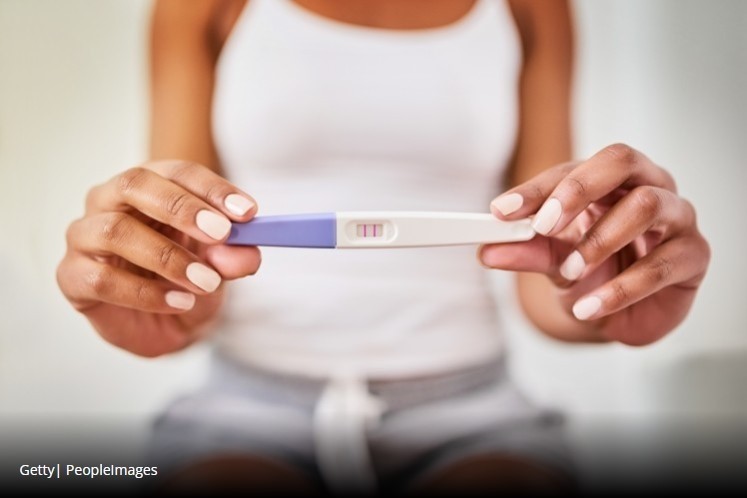Nutrition support for the infertile should prevent rather than treat, say researchers

The authors of a review on nutritional management of low-grade inflammation associated with infertility-related diseases argue that “only a comprehensive view” of all physiological aspects and their role in female infertility could facilitate a more effective dietary approach to improve fertility outcomes.
They comment: “Although the genotype may predispose to nutrition-related disease, dietary factors may influence gene expression via their epigenetic activity, thereby affecting proteins and metabolites.
“Personalised nutrition is a tool to preserve health rather than treat a condition. Since infertility is a social problem and an emerging priority for public health.”
Nutrition and fertility
Infertility is defined as the failure to achieve pregnancy after 12 or more months of regular unprotected sexual intercourse. The condition affects 48.5 million couples globally with related psychological implications and negative impact on quality of life.
Women with infertility are more susceptible to premature mortality from cancer (such as digestive, genito-urinary, and lymphatic and hematopoietic variants) and non-malignant diseases of the gastrointestinal system. “Therefore, nutritional support in infertile patients is even more important due to its potential long-term protective effect,” the study authors write.
There has been limited progress in the success rate of assisted reproductive technologies (ART) over the decades and this has motivated experts to investigate the effects of modifying lifestyle and nutritional habits.
“Nutrition has been associated with the development of multiple conditions, and mounting evidence suggests an interdependent correlation between nutrition and female fertility,” the researchers say.
“The hypothesis that an appropriate diet improves fertility is supported by studies in both animal models and humans.”
Dietary parameters
There are conflicting results on the optimal diet to prevent female infertility, but improvements in reproductive health have been attributed to the correct balance of proteins, carbohydrates, lipids, antioxidants, and folate – and in particular, consumption of whole grains, fruit, vegetables, fish rich in omega-3, and olive oil.
The researchers analysed a number of dietary (nutrigenetic) features that could be useful in the management of low-grade inflammation.
They identified dietary inadequacies in B vitamins (folate and choline) as a growing problem in both developed and developing countries and suggest testing MTHFR polymorphisms together with vitamin B status in the preconception period to highlight micronutrient deficiencies to plan an adequate B vitamin-enriched diet.
The benefits of early diagnosis of celiac disease on patients’ proinflammatory status and reproductive outcomes, as well as consumption of adequate levels of omega-3 and 6 fatty acids, were also mentioned.
Several diseases linked to infertility are related to proinflammatory conditions and should always be considered in the nutritional management of infertile patients to ensure sufficient intake of anti-inflammatory nutrients, they add.
Further interventions
Meanwhile genotyping for specific polymorphisms in relation to glucose consumption might help clinicians establish dietary protocols to improve poor implantation and miscarriage rates due to hyperinsulinemia in patients with type-2 diabetes.
Genotyping was also deemed useful in sensitising a patient to caffeine to reduce daily intake to 100mg and ameliorate health issues associated with high blood pressure.
On the other hand, there were no indications to warrant removal of milk and dairy products from the diet of an infertile patient.
Additional assessments of epigenetics, metabolomics, and microbiomics were performed as part of the exhaustive overview of physiological, lifestyle, and dietary interactions.
Conclusion
The authors assert that personalised nutritional support should be predicated on the global -omic characteristics of patients (nutrigenomics, metabolomics and microbiomics); combining several nutrients with anti-inflammatory properties to establish synergies and modulate cellular and molecular activity; exclusion of proinflammatory food and habits; continuous assessment of postprandial glycaemic and insulinemic response; and careful management of the glycaemic load of each meal.
There also suggest an advisory element to educate patients on dietary alternatives (like vegetarianism) and supplementation.
“We think that a change in the cultural mindset is required, and that healthier and personalised nutrition shall be suggested earlier and be continued throughout life in order to prevent infertility, rather than to treat it.”
One limitation of the study was its unique focus on women, when 50% of infertile cases relate to male infertility; mounting evidence demonstrates that men could also benefit from personalised nutritional support.
Source: Nutrients
Published online: doi.org/10.3390/nu14091918
‘Personalized Nutrition in the Management of Female Infertility: New Insights on Chronic Low-Grade Inflammation’
Gemma Fabozzi et al.















